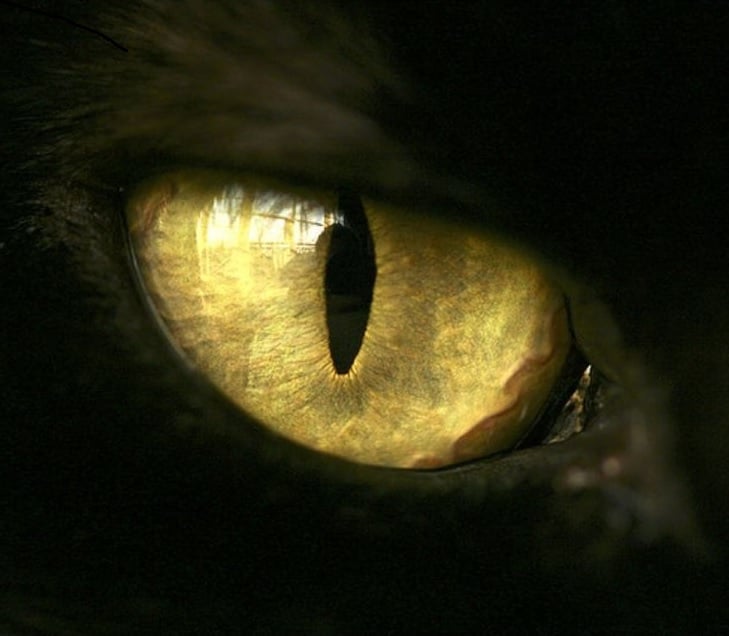LONDON. Michaelmas term lately over, and the Lord Chancellor sitting in Lincoln’s Inn Hall. Implacable November weather. As much mud in the streets, as if the waters had but newly retired from the face of the earth, and it would not be wonderful to meet a Megalosaurus, forty feet long or so, waddling like an elephantine lizard up Holborn Hill. Smoke lowering down from chimney-pots, making a soft black drizzle with flakes of soot in it as big as full-grown snowflakes - gone into mourning, one might imagine, for the death of the sun. Dogs, undistinguishable in mire. Horses, scarcely better; splashed to their very blinkers. Foot passengers, jostling one another’s umbrellas, in a general infection of ill-temper, and losing their foot hold at street-corners, where tens of thousands of other foot passengers have been slipping and sliding since the day broke (if this day ever broke), adding new deposits to the crust upon crust of mud, sticking at those points tenaciously to the pavement, and accumulating at compound interest.
Are you able to visualize what is happening in this passage?
This is from Bleak House by Charles Dickens, if you are curious.
deleted by creator
Random question -what’s your favorite book? I’m really vibing with your interpretation here.
deleted by creator
deleted by creator
Fed up people are struggling to walk, slipping and bumping into each other in a gloomy, wet, grey, smokey, dreary, sunless, muddy street in November in Dickensian London. Everything is caked in filth. Then someone swallowed a Thesaurus, ate a couple of mushrooms and tried to describe the scene.
Tl;dr the weather sucked. Everything was muddy and covered in soot.
Sure—but I grew up reading a lot of 19th-century literature.
I can read it, but for some reason I read it like a screenplay being read about some old-timey detective story.
I knew I have read it before somewhere.
Well, like every craft, skills develop over time. What was a blacksmith hundreds of years ago is now a CNC operator. Likewise, writing styles have evolved over time.
Yes, he has been a great storyteller, and his stories and characters stood the test of time, but his writing style did not.
Yes, but it’s really cumbersome to us foreigners.
Understanding and being able to visualize are different things. Some people can’t visualize at all
Oh of course it’s Charles fucking Dickens Yeah I get the gist of it but it’s unpleasant to read and doesn’t tell me much
I started reading, I drifted away at about the mud part so I restarted. This is really not my cuppa tea when it comes to text. On the second run I did better but no, I didn’t manage to visualize everything. The Megalosaurus sentence doesn’t make much sense to me. The text is convoluted, boring, and depressing but yes I guess I see the shitty street, the animals, the people -a crowd-, the miserable weather.
I’m aware of more information I’m not really processing but I’m just too annoyed at the text to apply the necessary brainpower required to digest it. It’s almost 2 AM and I’m tired.
Then I make it to the end and realize it’s Dickens, and that explains everything. I never liked his writing. Good night.
I would have understood Michaelmas as the feast day of Saint Michael. My studies of hagiography are too limited to say which day that is or why he got sainted. Nor did I know that British people used (maybe still use) that term to refer to an entire season.
Yes. Why do you ask?
That last link is a study, where researchers provided English undergrads with that passage, and asked them to think aloud while reading it. They had access to dictionaries and could look up words.
Here are the results:

That last bullet point is shocking to me. To be an English undergraduate I would have expected them to enter with very strong vocabulary and an innate desire to read / love of the language.
I had no trouble understanding it and thought it painted a really clear picture.
Do you have a link to the study?
Yeah - it’s what’s linked at the end of the OP
It is fascinating and scary. The “whole literacy” experiment the US did - where we ignored decades of research on how to teach children to read while filling the pockets of educational consultants - seems to have created a generation of near illiterate adults.
I would want to repeat that study with novels written in the past 25 years before concluding too much. Yes, the participants had access to a dictionary, but I imagine that needing to decipher certain parts, such as foreign cultural references and familiar words with unexpected meanings, interferes with the brain’s usual functions for turning words into images in the mind’s eye. And this even ignores the folks with aphantasia like me.
There’s a discussion of the history context too:

These were college students who were seeking English majors. People who are going to go on to teach Dickens - and hopefully have read Great Expectations or Tale of Two Cities at some point in high school.
Thanks for that. Indeed, that makes me less confident in their suitability to teach those subjects, but I worry about a sensational conclusion about their general literacy.
This is interesting but with n=85 and Bleak House being the ONLY sample text they use, I wouldn’t really put much trust in the results.
N of 85 is entirely reasonable for that kind of study. You could safely generalize that to the population of Kansas English undergrads - run that through G Power and tell me otherwise.
You say in another comment that this is indicative of a failed American education experiment, and that there’s a generation of illiteracy. I’m not saying that’s wrong, but it’s a much bigger generalization than “Kansas English undergrads” (which is such a specific category, why should I care about data that relates specifically to Kansas English undergrads?).
But my main gripe is the use of just one text. “People cannot understand this one book (therefore literacy is deficient)” is a much less convincing argument than “people cannot understand these 6 popular books from this time period” or “these 30 randomly selected fiction works” etc.
Is it well-established that Bleak House is representative of all the works we think about when we consider “literacy” and “illiteracy” as people’s ability to understand texts?I’m sorry, but there isn’t a single word in that text that an English undergrad should have to look up (although I did look up the dinosaur purely to see what it looked like).
I looked up Michaelmas because I had never heard of it. And it’s exactly what I initially thought it was (and exactly what it sounds like): a celebration of the archangel.
You say in another comment that this is indicative of a failed American education experiment, and that there’s a generation of illiteracy.
Yes, I’m alluding to a larger context outside of that study. In addition to the obvious harms of COVID/virtual school, many US schools switched to a model of teaching reading that omitted phonics entirely. This simply does not work for the vast majority of students, and this had already been demonstrated in the 1970’s.
The authors refer to that larger context here -

My remarks on generalizing the study to Kansas undergrads was to point out that is an entirely acceptable sample size. In statistics, when you think about sample size, you have to think about the population you are studying. This study was specifically studying the literacy of Kansas English undergrads, which I imagine is a small enough population that you can generalize that study to. This would indicate that many future English teachers in Kansas are struggling readers.
We can put that as a data point next to several other studies about the US’s current literacy crisis.
As far as why they chose Bleak House:

Yes, but I spent a lot of my childhood reading things like Sherlock Holmes, Jules Verne, count of Monte cristo, Oliver twist, etc.
I would argue Sherlock Holmes, Verne, and Monte Cristo (which I really like) read nothing like the slob OP posted. (I’ve never read Oliver Twist though).
I would argue that passages like this (Monte cristo) train you to understand OP’s slob: “I was then almost assured that the inheritance had neither profited the Borgias nor the family, but had remained unpossessed like the treasures of the Arabian Nights, which slept in the bosom of the earth under the eyes of the genie.”
Also, Oliver twist is by the same author as op.
No… I read your quote straight through and without issues. I had to re-read many of the sentences in OP’s quote and put effort to make sense out of them. Your quote feels normal, with flourishes, but normal. OP’s quote doesn’t. For me there is no comparison.
I also read the news about the same research article you did.
I was surprised how much I could understand, based on how much trouble people in the study had. Sounds like a wet miserable city our Lord Chancellor is in.
This is something we would have been asked to read and analyze in grade 8










